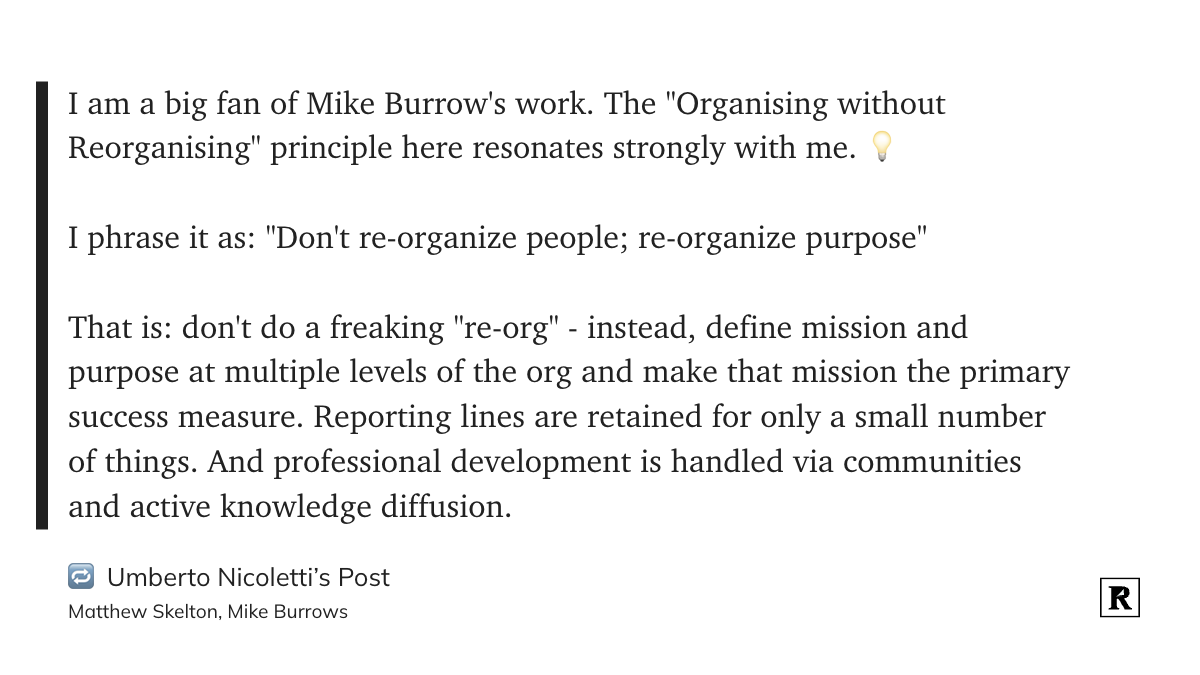[Book] Wholehearted
Being "whole"
Increasing decision-making
To increase decision-making capacity [...] there must be move away from people serving the process and toward the process serving those who do the work.
While this is not easy to achieve as it requires context to be pushed down where the work happens and competence with those who do the work (and are trusted to decide), it certainly resonates with me, so much so that the first (and only) rule of my R&D department at Proemion is "rules are meant to serve us, not for us to serve the rules".
Constraint 6: Sense of self (Identity)
A team's identity constrains (and preserves) the team itself. Like most thing it can be good or it can be bad when taken to its extremes. The passage in the book that made me include it here is this:
I have seen some team identities get so bound up in their undoubted technical prowess that they lose empathy for their customers or show contempt for other teams whose cooperation they need. The strain on those relationships soon impacts negatively performance.
Outcomes before solutions
While discussing change-related strategy, Mike Burrows offers an approach that puts agreement on outcomes before solutions. I love how simple and yet effective that can be, as it completely flips the usual change management approach that relies on monolithic solutions, while maintaining or increasing the ability of the organization for decision making (as described above).
Or, how Martin Fowler puts it: problem -> context -> solution - emphasis mine.
Five networks
The five networks idea is described here and the part I love and can relate to is the following observation:
The more that networks 2, 3, and 4 are healthy, the more that networks 1 and 5 look after themselves.
